America, by Way of the Antelope Valley
Such areas contain the dispirited middle that Obama will have to win over to be re-elected, people whose struggles with daily life are so consuming that the national political debate over the budget and the deficit seems far away and irrelevant.Rather than a view of a candidate, the valley offers a view of the nation.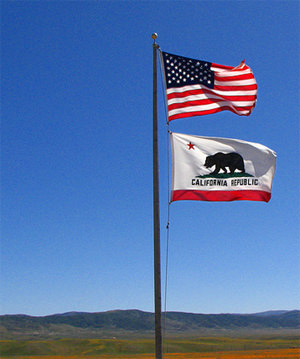
When the larder needs refilling at the Grace Resource Center, Pastor Steve Baker picks up the phone and calls the federal government. “Ten or fifteen pallets of food are delivered to my door,” he said. Peanut butter, 100 cases of it, 24 jars to a case; 120 cases of canned fruit; 124 cases of vegetables.
It’s been easier to get food from various government sources since President Barack Obama took office, said Baker, executive director of the center. Here in the small Antelope Valley city of Lancaster, separated from Los Angeles by 75 miles and a mountain range, the impact of the 2008 election is felt in ways large and small, as will be the impact of next year’s presidential contest. For one thing, if the winner espouses the House Republicans’ philosophy, Baker expects to get less food for the 8,000 poor people the center serves every month. He’ll have to raise more from donors.
I came to the valley, in the high desert, to report on the 2012 presidential election. Not that there is a presidential candidate within at least a couple of hundred miles of there, except when Obama swoops down on the Beverly Hills-Malibu axis to pick up millions in campaign contributions. “It’s another country here,” said a friend who has lived in the Antelope Valley for several years.
I had to take three freeways to get there. One of the advantages of writing from Los Angeles is that anything good or bad, uplifting or awful, is within driving distance of my house. From the mountains, pleasantly green in the spring, I headed downhill into the valley, stretching out for miles to the Mojave Desert.
Rather than a view of a candidate, the valley offers a view of the nation. It is part of that borderless, vaguely defined element of the national landscape known as Middle America, which includes parts of the Midwest, the South, the Southwest and even the Atlantic shore, most notably Republican Gov. Chris Christie’s New Jersey. California, usually thought of as a liberal Democratic state, has its own Middle America. It runs through the interior of the state, from the desert north of Mexico through the Central Valley almost to the Oregon border, and it is more conservative than the cities and towns along the coast.
The economic recovery is slow there. While unemployment has stabilized at a painful 12 percent in California as a whole, it is 17 to 19 percent in the Antelope Valley, the same as in the Central Valley city of Fresno. For the nation, it is 8.8 percent. It’s hard to remember back that far, but between 1995 and 2007 the national unemployment rate was below 6 percent except for one year, according to the Urban Institute. Julie Burcham, chairperson of the Greater Antelope Valley Economic Alliance, said, “We still face high unemployment, a severe state budget deficit, a marked decline in the housing market. …”
State and local government jobs have been reduced, a toll of the recession. Aerospace, the driver of the economy in the days when “The Right Stuff” was filmed partly in the Antelope Valley, has dwindled. About 60,000 people, some rising as early at 4:30 a.m., commute on the freeways or by trains to jobs in Los Angeles and elsewhere. Driving through a middle-class subdivision, I didn’t see the bank sale or foreclosure signs that were evident in similar areas in 2008. But some yards were neglected, the lawns unwatered and uncut, evidence of owner-occupied homes having been turned into rentals.
The impact of prolonged unemployment is visible in the 8,000 people served by the Grace Resource Center every month. Drug addiction, alcoholism and mental illness prevent some from working. But, said Executive Director Baker, many “are people who five years ago were gainfully employed [and] are out of work or in two-income families [where] only one is working.”
Baker told me about a phenomenon that I had first noticed at another facility for the poor—former donors coming in for help. “People who once supported us are now walking around the parking lot getting up the nerve to come in for help,” he said. “They don’t know how to ask for help.”
Such areas contain the dispirited middle that Obama will have to win over to be re-elected, people whose struggles with daily life are so consuming that the national political debate over the budget and the deficit seems far away and irrelevant.
Obama’s speech on the economy last week didn’t offer them much help or hope, even though liberals were pleased by the talk. Many on the left liked it because, after months of hibernation, the president expressed some support of—or at least familiarity with—liberal ideas.
The president remains a dollars-and-cents guy emphasizing the deficit. His speech was more “bottom line” than compassionate. He still doesn’t have much to say to the unemployed who hesitantly accept canned goods at food banks or learn how to punch a computer keyboard at a training center in hopes of finding a job.
There was, of course, praise in editorials and from media pundits for Obama’s willingness to sit down with Republicans, no matter how destructive their behavior. Washington pundits cherish good manners. But let’s not praise his efforts to be civil to the Republican right. The coming election should be about the people trying to find jobs.
Your support matters…Independent journalism is under threat and overshadowed by heavily funded mainstream media.
You can help level the playing field. Become a member.
Your tax-deductible contribution keeps us digging beneath the headlines to give you thought-provoking, investigative reporting and analysis that unearths what's really happening- without compromise.
Give today to support our courageous, independent journalists.
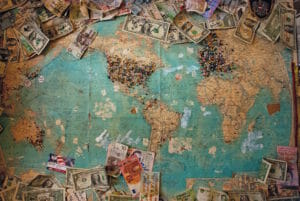
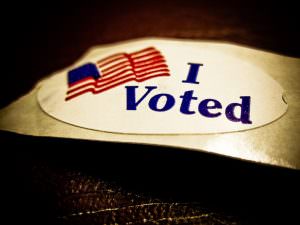
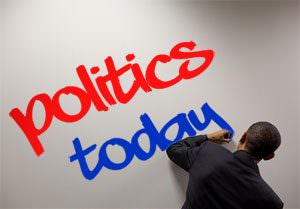
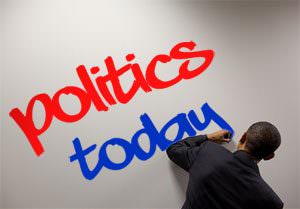
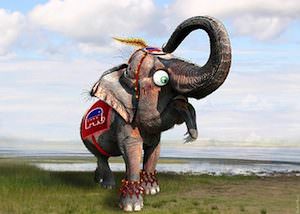
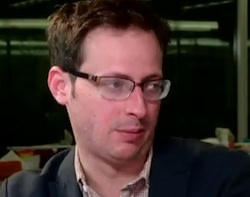
You need to be a supporter to comment.
There are currently no responses to this article.
Be the first to respond.